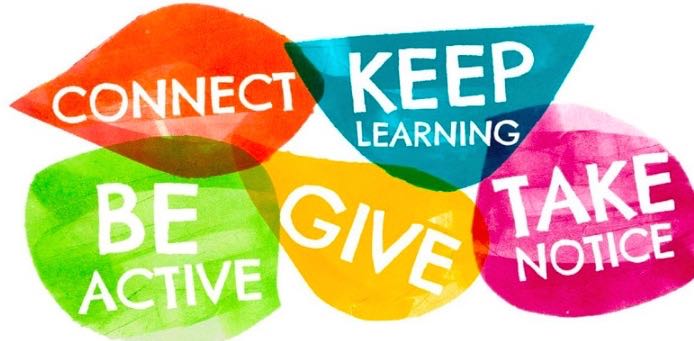When we deliver our courses, people are often surprised at how much emphasis we place on monitoring and improving our own well-being and at some of the things we suggest, that might be as effective, often more effective than medication for the individual.
For instance, we look at the 5 Ways to Well-being, a simple set of guidelines put together by the New Economics Foundation to help people keep themselves well, in much the same way that your 5 servings of fruit and veg do.
The 5 Ways are:
Connect
Be Active
Take Notice
Keep Learning
Give.
The thing about them is that they are all evidence-based, as are all the elements of the courses we offer at WWA.
Connect – comes from the psychological well-being research that resulted in Self Determination Theory and one of its components, Basic Psychological Needs Theory which emphasizes our need for relatedness. We are all social animals and few of us can live happily in isolation. Keeping in touch is good for you.
Be Active – is obviously based on a firm medical footing in terms of keeping physically fit but it is a double whammy in that it causes the brain to produce endorphins, which are feelgood neurotransmitters, and it helps burn off stress chemicals produced by the fight/flight/freeze response in exactly the way nature intended.
Take Notice – is where mindfulness fits in. Going back to Self Determination Theory it has been shown that mindfulness and its open awareness is helpful in allowing us to choose behaviours that are beneficial to our true needs.
Keep Learning –research has shown a link between adult learning and higher levels of optimism, life satisfaction, and well-being.
Give – neuroscientists have shown evidence that the reward areas of the brain are active when we co-operate with each other but above and beyond that, other research into social interaction has shown a connection with happiness and life satisfaction.
You can read the report detailing the evidence base behind the 5 Ways here and rest assured that anything you hear on a WWA course is based on the best evidence that is available.

